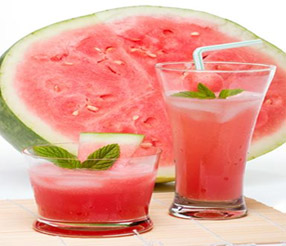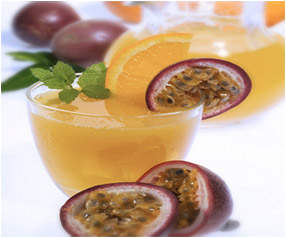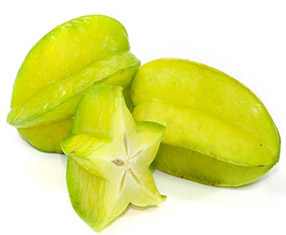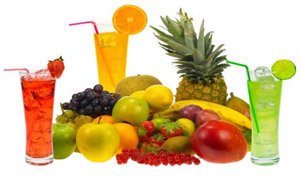Issue :- 7

Why is it Important to Eat Fruits?
Eating fruit provides health benefits — people who eat more fruits and vegetables as part of an overall healthy diet are likely to have a reduced risk of some chronic diseases. Fruits provide nutrients vital for health and maintenance of your body.
Health Benefits
- Eating a diet rich in vegetables and fruits as part of an overall healthy diet may reduce risk for heart disease, including heart attack and stroke.
- Eating a diet rich in some vegetables and fruits as part of an overall healthy diet may protect against certain types of cancers.
- Diets rich in foods containing fiber, such as some vegetables and fruits, may reduce the risk of heart disease, obesity, and type 2 diabetes.
- Eating vegetables and fruits rich in potassium as part of an overall healthy diet may lower blood pressure, and may also reduce the risk of developing kidney stones and help to decrease bone loss.
- Eating foods such as fruits that are lower in calories per cup instead of some other higher-calorie food may be useful in helping to lower calorie intake.
Nutrients
- Most fruits are naturally low in fat, sodium, and calories. None have cholesterol.
- Fruits are sources of many essential nutrients that are under consumed, including potassium, dietary fiber, vitamin C, and folate (folic acid).
- Diets rich in potassium may help to maintain healthy blood pressure. Fruit sources of potassium include bananas, prunes and prune juice, dried peaches and apricots, cantaloupe, honeydew melon, and orange juice.
- Dietary fiber from fruits, as part of an overall healthy diet, helps reduce blood cholesterol levels and may lower risk of heart disease. Fiber is important for proper bowel function. It helps reduce constipation and diverticulosis. Fiber-containing foods such as fruits help provide a feeling of fullness with fewer calories. Whole or cut-up fruits are sources of dietary fiber; fruit juices contain little or no fiber.
- Vitamin C is important for growth and repair of all body tissues, helps heal cuts and wounds, and keeps teeth and gums healthy.
- Folate (folic acid) helps the body form red blood cells. Women of childbearing age who may become pregnant should consume adequate folate from foods, and in addition 400 mcg of synthetic folic acid from fortified foods or supplements. This reduces the risk of neural tube defects, spina bifida, and anencephaly during fetal development.
Healthy Foods 11 Fruits You Can Eat All Summer Long
Watermelon
If you're thirsty, watermelon works wonders in replenishing lost fluids for the body, says Rosanna Lee, a nutrition educator and community health promoter based in Toronto. "Watermelon will keep you cool, hydrated, satiated and healthy. Melons contain lycopene that protects your skin against sun damage, and they're a good source of vitamin A and C.

Achieve that younger-looking skin with just 2-cups of watermelon daily. Research showed that watermelon cuts the risk of sun related skin damage by 40%. That's because watermelon is nature's richest source of lycopene, an antioxidant that scavenges the UV-induced free radicals that causes sunburn and wrinkling. Lycopene may also help reduce the risks of cancer and other diseases.
Watermelon can help improve sleep. By eating a few slices of this fruit after dinner can extend the deep stages of sleep by 27%. The reason is watermelon's polysaccharide carbohydrates rev the body's output of serotonin. When levels of serotonin increase at night, the brain is less sensitive to disruptive stimuli (like noise) during sleep.
Berries
Not only are these little gems delicious and sweet, but they are also packed with flavonoids that provide antioxidant benefits. "They can also promote increased blood flow to your skin and decrease your sensitivity to light to improve your skin’s appearance, structure and texture," Lee says.

The antioxidants in berries can help your body fight oxidative stress caused by free radicals that can lead to illness. Eating a diet rich in antioxidants can help improve your health, protect your skin and hair, and prevent certain diseases. All fruits and vegetables contain antioxidants, but nutrient-rich berries are some of the absolute best sources.
Vitamin C is another strong antioxidant found in berries. It is largely responsible for the health of collagen, which helps maintain cartilage stores and aids in joint flexibility. Eating vitamin C–rich berries will contribute to radiant skin and healthy hair, and may reduce the risk of arthritis, cataracts, and macular degeneration.
Pineapple
When we think of summer, we also think of the tropical vacations and exotic fruits. Pineapples provide a good mix of vitamins, antioxidants and enzymes like bromelain that can protect your body against inflammation.

Fresh pineapple is low in calories. Nonetheless, ii is a storehouse of several unique health promoting compounds, minerals and vitamins that are essential for optimum health.
100 g fruit provides just about 50 calories equivalent to that of apples. Its flesh contains no saturated fats or cholesterol; however, it is rich source of soluble and insoluble dietary fiber like pectin.
Mango
Mangos (fresh or frozen) in yogurt, smoothies, salads, or on their own, add a nice topical kick to your summer fare. These fruits are packed with vitamin A and C, and have cancer-preventing beta-carotene.

Fresh mango is a good source of potassium. 100 g fruit provides 156 mg of potassium while just 2 mg of sodium. Potassium is an important component of cell and body fluids that helps controlling heart rate and blood pressure.
It is also a very good source of vitamin-B6 (pyridoxine), vitamin-C and vitamin-E. Consumption of foods rich in vitamin C helps the body develop resistance against infectious agents and scavenge harmful oxygen-free radicals. Vitamin B-6 or pyridoxine is required for GABA hormone production within the brain. It also controls homocystiene levels within the blood, which may otherwise be harmful to blood vessels resulting in CAD, and stroke.
Kiwi
Did you know green and yellow kiwis are packed with more vitamin C than oranges? "These are definitely a great choice when it comes to one of the summer fruits that offer excellent nutrition. Kiwis are giant berries that are packed with vitamin C and E, potassium, and fibre," Lee says.

Manage blood pressure: It is a very rich source of healthy electrolyte potassium. Potassium plays a major role in body cells by keeping the body fluids and electrolyte in balance, which help control heart rate and blood pressure by countering effects of sodium.
Good for skin: Kiwi is a good source of vitamin E, an antioxidant that can help against potential skin degeneration and work wonders for the health of the skin.
Papaya
Some people use papaya juice to tenderize meat or as a natural exfoliating ingredient for healthy and glowing skin. But there are also nutritional benefits to eating papaya on its own. "Papaya contains a healthy dose of vitamin C to help you fight against colds. Vitamins C and E and beta-carotene also help to reduce inflammation within the body.

It is also used to treat irregular menstruation. Papaya helps in easing menstrual cramps and promotes a regular flow. Hence it is used in case of abortions.
Papaya is rich in Vitamin A and C. Hence, it boosts the immunity levels of the body especially when a person is suffering from fever and cold.
Oranges
Squeeze! Nothing says summer like the smell of fresh citrus fruits. Oranges are rich in potassium and an essential nutrient and have enough potassium that can prevent against muscle cramps during workouts. On top of this, oranges also contain 80 per cent water so they will also keep you hydrated on the go.

Vitamins present in orange posses the good skin maintaining properties providing healthy, glowing, smooth and soft skin. This nutritional benefit of orange is used by cosmetic companies for making their product.
One of the very good health benefits of orange juice is that it helps in absorbing the biochemical and physiological effects of medicines which help you cure your disease in a faster processes thus helping in absorbing medicines by the body.
Guava
Another one on the tropical list, guava is often found in beverages. But this fruit also contains a high concentration of antioxidant properties that can help fight against prostate cancer. "One cup of guava also contains more potassium than a serving of banana," says Lee.

Women with fertility problems can eat guavas as they contain a good amount of folate, which contain fertility-promoting properties.
Pink guavas are said to contain twice the amount of lycopene present in tomatoes. Lycopene protects the skin from being damaged by UV rays and also works against prostate cancer.
Passion Fruit
Native to South America, passion fruit contains tons of vitamin A and fibre to help improve our vision and lower cholesterol. One serving of this fruit will give you two times more potassium than a banana — who knew?

Fresh granadilla is very rich in potassium. 100 g fruit pulp has about 348 mg of potassium. Potassium is an important component of cells and body fluids, and helps regulate heart rate and blood pressure.
Vitamin A is also required maintaining healthy mucus membranes and skin. Consumption of natural fruits rich in vitamin-A, and flavonoids helps to protect from lung and oral cavity cancers.
Peaches
Not only are these fruits juicy and tasty during the summer, but peaches also come with a healthy dose of vitamin C and A. If you're still worried about that beach body, peaches are low in calories and can help you manage your weight.

Regular intake of one large peach can help you to lose weight. One peach contains only 68 calories surprisingly with no fat. Peach, however, is an ideal diet for dieters
One of the major health benefits of peaches is for skin care. It’s a great source of Vitamin C which is widely used for skin care. You can get plenty of Vitamin C from a large peach. Apart from health benefits, you can directly use peaches for skin care such dark circles and wrinkles.
Star fruit
North Americans call this the star fruit, but in Asia it is known as carambola. Star fruits are low in calories and high in vitamin C and a good source of antioxidants. These fruits are usually in season from July through September.

Star fruit is one of the very low calorie exotic fruits. 100 g fruit just provides 31 calories, which is much lower than for any other popular tropical fruits. Nonetheless, it has an impressive list of essential nutrients, antioxidants, and vitamins required for well-being.
The fruit along with its waxy peel provides a good amount of dietary fiber. Fiber helps prevent absorption of dietary LDL cholesterol in the gut. The dietary fibers also help protect the mucous membrane of the colon from exposure to toxic substances by binding to cancer-causing chemicals in the colon.
How Fruits and Juices Can Benefit You in Ramadan

A combination of Ramadan and summers with scorching heat means a special care needs to be taken to prevent ourselves from dehydration. The weather this Ramadan is expected to be really hot and not taking adequate amount of water may cause you discomfort. In this article you will find ways in which fruits and juices can benefit in Ramadan along with some innovative fruit therapies and lip smacking juice recipes for Ramadan so that you can get the best ways to beat the heat during this summer Ramadan.
Importance of Liquid Intake in Ramadan:
Liquid intake is very important. Including a correct amount of Fruits and juices can benefit in Ramadan. The break from food and water till iftar results in low energy level and the body demands for an immediate source of energy that can refresh you and provide you instant revival. Dates and juice serving does the job well and brings the blood glucose to the normal level. The balance of water and minerals in the body is maintained by the help of juices and fruits. Taking too much of sherbet, fruit juices and sweets have been found unhealthy, for this reason keeping a balance is important in every way.
Fruits and Juices Help in Getting Rid of Fatigue:
People are now well aware about the nutrition value of fruits and fresh juices. Anti oxidants, vitamins, calcium, potassium and other minerals in fruits and juices can help in keeping the balance in our bodies during Ramadan. Due to an alteration in routine along with a change in eating and sleeping habits a person may feel tired and exhausted. Fruits and juices play a vital role in getting rid of fatigue and tiredness as they supplement the nutrients which are essential to resist fatigue.
Fruit Therapy in Ramadan
Fruits and its juices have been used for healing treatments since long. The fruit therapy is nothing new to the world now and for this reason we can use this delicious and healthy treat as a therapy to provide us a pack of refreshment and nutrients in Ramadan to boost our energy level. We have compiled for you some therapies and benefits you can get from the fruits that will be available this Ramadan so you can find out how fruits and juices can benefit in Ramadan.
Apricots
Apricot is also known as the super healing fruit which is a quick energy fixer. It contains a good amount of iron, copper and potassium. Apricots can be taken at Iftar time as it also aids digestion.
Bananas
A healthy snack that contains vitamins and is said rich in potassium. Bananas can be taken at the time of Sehri or Iftar both as it provides great deal of energy for your body.
Cherries
These little cherries are full of minerals and vitamins, great in taste and low in calories. You may have a cup of cherries after Isha prayers and Tarawih which will give you a fat free treat of nutrients.
Citrus fruits
How can you forget orange juice and lemonade in Ramadan? Vitamin C and calcium along with phosphorus and some fiber is what you get in a glass of citrus fruit juice. Iftar is the best time for a chilling glass of citrus juice that can revitalize your body and rejuvenate the taste buds.
Mangos
King of all fruits is a special treat available in Ramadan this year. A bowl of chill slices of mangos in Iftar means a natural way to energize your system as it contains fructose. Mangos have fiber which may help in digesting the oily and heavy intake in Iftar. Isn’t it the yummiest way to break your fast?
Papaya
Experiencing digestive issues in Ramadan? Papaya fruit therapy can aid you with its powerful Papain enzyme. This fruit is said to be amongst the most powerful food available in terms of being nutritious.
Peaches
Diced peaches or a Peach cooler provides a good source of fiber. Iron and fructose helps in provision of energy. Peaches may help in protecting the stomach in Ramadan from the inflammation caused by changes in eating and sleeping habits.
Fruit Juice Treats for Ramadan
As we have already discussed how important it is to include fruits and juices in our daily Ramadan routine, we now know how important it is to include liquids to avoid constipation and dehydration in summer Ramadan. Warning sign is the dark yellow urine which indicates that you are lacking in the liquid intake and need to increase the amount of water and fruit juices from the iftar time till Sehri. We have for you some fruit juice treats and a few delicious drinks recipes to keep you going this Ramadan. Diabetic patients or people suffering from any other health issues must consult their doctors before opting for sweets and juices. Keeping a balance in everything is important to stay healthy and fit.
Mango juice
Cool sweet soothing mango juice which can be made in no time. Prepare the mango puree and freeze it for later use in Ramadan. This can save your time for ibaadat and provide you with a mango chiller in no time just before Iftar.
Take good sweet ripe mangos. Peel them and dice into small pieces which are easy to blend. Pour in some water, sugar if needed and mango chunks in the blender. The puree is now ready which can be mixed with crushed ice and some chill water when you need to serve your juice.
If you want to freeze your puree for a couple of days and prepare a refreshing mango squash or a mango cooler, we have another recipe for you.
You need 3 medium sized mangos diced in small chunks to be added in a saucepan with about 500 ml of water. Bring to boil and when it starts boiling cover the lid of the saucepan while turning down the heat. On low heat let the mangoes simmer for about half an hour and check with a fork if the mango chunks are soft enough. If the mangoes turn soft before the stated time you may take the saucepan off the heat.
Now blend the liquid with the chunks in a blender after it cools down a bit. Add 1 small pinch of salt as a taste enhancer and sugar according to your taste while blending. Strain the juice to remove the concentrated puree and leftovers if any. Refrigerate and serve chill. You may add water according to the desired consistency.
Mango juice
Cool sweet soothing mango juice which can be made in no time. Prepare the mango puree and freeze it for later use in Ramadan. This can save your time for ibaadat and provide you with a mango chiller in no time just before Iftar.
Take good sweet ripe mangos. Peel them and dice into small pieces which are easy to blend. Pour in some water, sugar if needed and mango chunks in the blender. The puree is now ready which can be mixed with crushed ice and some chill water when you need to serve your juice.
Lemonade
Refreshing lemonade can easily be prepared without any hassle. You can prepare lemonade in the afternoon and refrigerate it for a cool drink at Iftar. It helps in controlling blood pressure and is said to be one of the best solutions of dehydration.
Preparing lemonade is very simple. You just need to blend water, lemon juice and sugar with crushed ice and serve with some mint leaves as a garnish.
Coconut water
Going out for a walk at night in Ramadan or have planned an outing at night? Try coconut water instead of a fizzy drink which will cool your system and re-hydrates your body. It also helps in making your immune system strong in summers.
Watermelon Juice
We are lucky to have watermelons available throughout the year now. This fruit is a great source of vitamins and has a great cooling effect. Watermelon helps in protection from cold and provides energy. It is a good way to stay hydrated and is easy to prepare. Watermelon juices are said to be the most summer friendly drink. If you have the Apple juice machine in your kitchen then watermelon juice is a 5 minute job for you. Just cut your watermelon removing the hard green covering and squeeze the chunks in the machine. Here you go! The juice is on its way to make your iftar special. You may add tiny frozen watermelon chunks in the juice just before serving. Another idea is to pour some watermelon juice in an ice tray and let it form ice cubes. Add these watermelon ice cubes in the juice to beat the heat.
You can also prepare the juice in a blender. For that you need to cut the watermelon chunks and remove its seeds. Now add them in the blender with some sugar or honey and blend well will crush ice.
You may also prepare cucumber juice, peach juice, pineapple juice and carrot juice to keep you hydrated and cool in Ramadan. Avoid drinks with caffeine as the withdrawal symptoms while you are fasting may cause headache. Caffeine drinks in Sehri may make you feel thirsty soon. So this Ramadan, try to add more fruits and juices in your diet and learn how fruits and juices can benefit in Ramadan.
Nomination form for 2020 Global Awards
https://www.unaniherbal.org/nomination-form.html
For Consultation click here
Copyright 2014 Unani Herbal
If you wish to cancel your subscription to this newsletter click here






